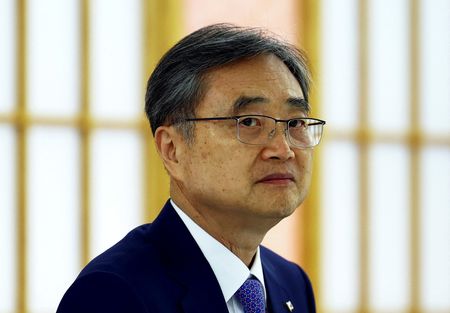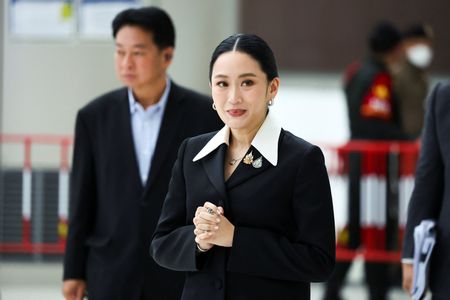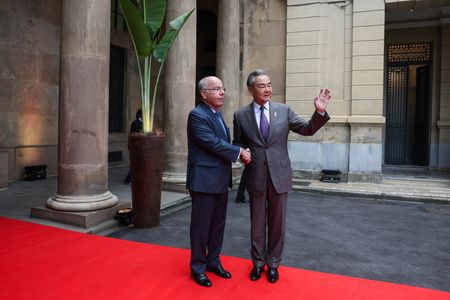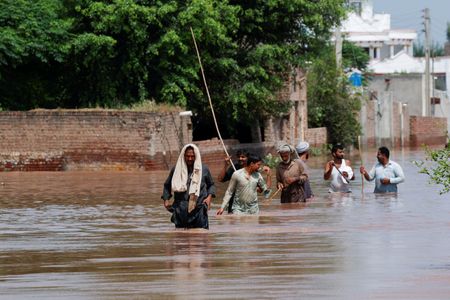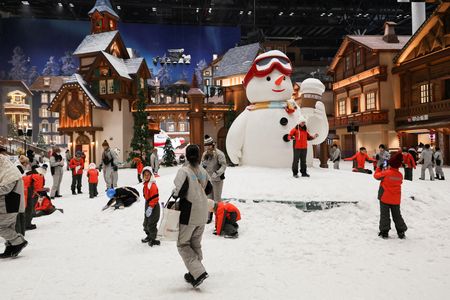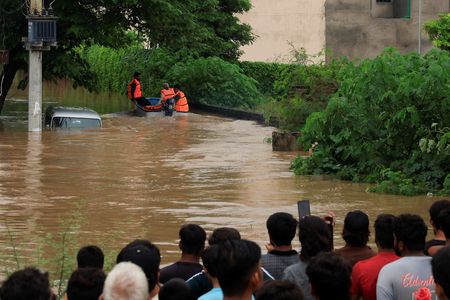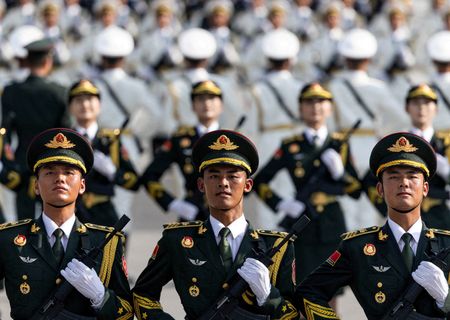By Joyce Lee and David Brunnstrom
SEOUL/WASHINGTON (Reuters) – South Korean Foreign Minister Cho Hyun said on Thursday the U.S. and South Korea have agreed to discuss nuclear fuel reprocessing following a summit between U.S. President Donald Trump and South Korean President Lee Jae Myung this week.
“We operate 26 nuclear power plants, buying and bringing in fuel for them every time … We have been feeling the necessity of being able to reprocess it and to make our own fuel through concentrates,” Cho said in a live televised interview.
“In order to do this, cooperation with the U.S. is most important. We need to change the nuclear agreement, or use another method under the agreement (between the countries). So it is very meaningful that we decided to begin discussions in that direction.”
South Korea is not allowed to reprocess spent nuclear fuel – which can be used to make nuclear weapons – without U.S. consent under an agreement between the countries.
Changing that agreement would mark a major policy change for the United States, which has long sought to limit the number of countries with this capability as part of non-proliferation efforts.
Cho has said previously that Seoul’s intention is for industrial and environmental purposes, not for nuclear armament.
He reiterated on Thursday that “any talk about wanting our own nuclear arms or having potential nuclear capabilities through revision (of the agreement) would be something that the U.S. could never accept in terms of overall nuclear non-proliferation.”
The U.S. State Department did not give specific responses when asked if the U.S. was open to changing the agreement and what sort of discussions it had agreed to, but a spokesperson said:
“America has a longstanding policy to limit the spread of enrichment and reprocessing capabilities around the world and to seek the highest nonproliferation standards achievable in all 123 agreements.”
Section 123 of the U.S. Atomic Energy Act allows cooperation with other countries developing civil nuclear capabilities, but specifies nonproliferation criteria, including limiting uranium enrichment.
South Korea has no nuclear arms, but borders North Korea, which does. It is currently protected under the U.S. nuclear umbrella, but amid growing concerns about the reliability of U.S. security guarantees, polling shows that up to 75% of the South Korean public is in favor of the country building its own nuclear arsenal.
Daryl Kimball, executive director of the U.S.-based Arms Control Association, told Reuters last week there was no practical industrial or environmental need for South Korea to start reprocessing, or for a domestic uranium enrichment capability for its energy programme.
In July, Kimball and other non-proliferation advocates wrote to U.S. lawmakers expressing concern about executive orders Trump signed in May mandating a government study to evaluate potential civilian use of plutonium fuel, saying that premature implementation could foster the spread of sensitive nuclear weapons-related technology and increase risks of proliferation.
The letter said that the U.S. could not effectively discourage countries from recycling weapons-usable plutonium from civilian fuel if it did so itself.
(Reporting by Joyce Lee and Hyunjoo Jin in Seoul and David Brunnstrom in Washington; Editing by Ed Davies, Rod Nickel)

